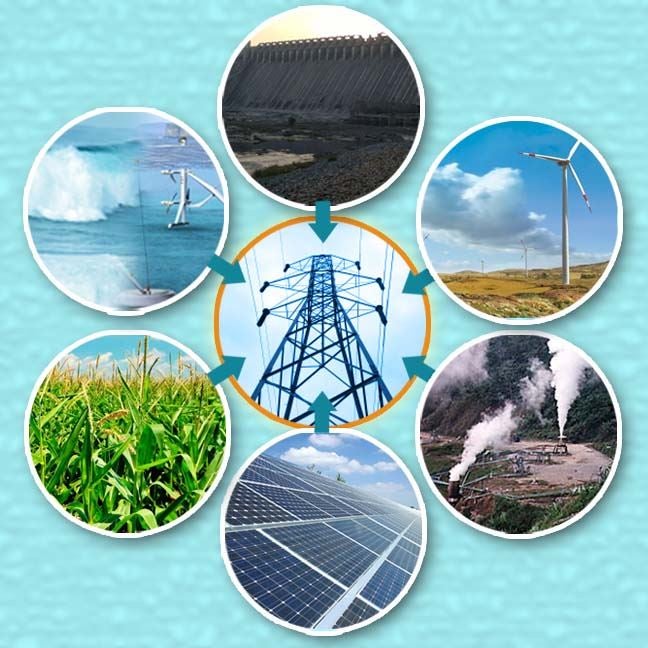 A growing trend in our area is the harnessing of renewable energy such as solar, wind, or other types of energy. Lumbee River EMC supports the endeavors of our members as they look for ways to participate in interconnecting to our power grid.
A growing trend in our area is the harnessing of renewable energy such as solar, wind, or other types of energy. Lumbee River EMC supports the endeavors of our members as they look for ways to participate in interconnecting to our power grid.
Lumbee River EMC emphasizes the importance of safety to our Membership and Employees. To ensure all systems are designed and installed with safety and reliability in mind, LREMC requires certain information to be provided by any Member who wishes to install any renewable energy system. LREMC offers a 2-meter Buy All, Sale All setup.
Click on the links below to access information that will help as you prepare to interconnect to our power grid.
Small Qualifying Facilities: Less than 25kW
Large Qualifying Facilities: More than 25kW
Solar energy systems work when sunlight hits a solar photovoltaic module (solar panel or PV panel) and causes electric current to flow. The current produced from the PV panels is controlled & regulated by an inverter, which converts the direct current (DC) to alternating current (AC), needed for the use by household appliances.
The amount of power generated by a solar energy system depends on how much of the sun’s energy reaches it & the size of the system itself. A system that will generate 100% of your energy needs is expensive, so most systems are sized to generate a portion of your home’s needs. Some other items to consider that will impact your home’s solar production are nearby shade trees, age of roof and Homeowners Association (HOA) restrictions.
The National Renewable Electric Laboratory has a great calculator you can use as a starting point to estimate your energy production. https://pvwatts.nrel.gov/
No, Lumbee River EMC does not currently offer net metering. Lumbee River EMC only offers Buy All, Sell All, which means Lumbee River EMC will sell you all the power you use & will in turn buy all the power your solar system produces. Lumbee River EMC purchases the power your system produces at their avoided cost. See the Electric Rate Schedule on pages 14-16
It can take up to 25 years or more for most solar installations in our area to realize the total financial payback on their investments through electric bill savings, depending on the total solar project cost. Solar project cost can vary greatly depending on the equipment, financing, and installation company.
Certified PV products & systems generally are reliable, with a life expectancy of about 30 years. Most manufacturers offer 20-to-25-year warranties for panels; extended warranties may be available at an extra cost.
Visit the Database of Federal & State Incentives for Renewable and Efficiency at https://www.dsireusa.org/
Lumbee River EMC does not endorse any specific solar installers. We recommend you do your research before selecting an installer. Be sure to find a qualified & insured professional with the North American Board of Certified Energy Practitioners, the standard certifier for the solar industry. A good place to start your search is with EnergySage.
EnergySage has a network of pre-screened, local installers which you can find at https://www.energysage.com/ .
Consider asking the following questions to solar installers:
-
Can you provide a list of references?
-
Are you familiar with Lumbee River EMC Renewable Energy Member Generation Program? What financial assumptions regarding electric cost were used in determining your payback?
-
What payment options do you offer?
-
Do you handle the paperwork for tax credits?
-
Which solar application would be most beneficial for me: Rooftop Solar Panels or Ground Mount Solar Panels?
-
Rooftop Solar - Will my roof be strong enough to handle the weight of the solar panels. Does my roof need to be replaced prior to the solar panels being installed?
-
Ground Mount Solar – Do I have enough land to accommodate ground mounted panels? Will the system produce more energy than rooftop solar panels?
-
-
What type of insurance do you carry?
Make sure you read & understand Lumbee River EMC Renewable Energy Member Generation Program guidelines, requirements & interconnection agreement.
Complete & submit the following:
-
Requirements
-
Agreement
-
Application
-
One-Line Diagram of the System
-
Specifications of System (Panels, Inverter, etc.)
-
Homeowners Insurance
-
Interconnection Fee ($400)
The most direct option is to file a complaint with the Consumer Protection Division of the Attorney General’s office: https://ncdoj.gov/file-a-complaint/
File a complaint with the NC Licensing boards:
Complaints - NC State Board of Examiners of Electrical Contractors (ncbeec.org)
Complaints – NC Licensing Board for General Contractors (nclbgc.org)
File a complaint with the Better Business Bureau:
File a Complaint | Consumer Complaints | Better Business Bureau® (bbb.org)
To the extent the solar installers have signed on to the NCSEA Solar Business Code, the consumer member can file a complaint with NCSEA, and NCSEA may take some responsive disciplinary action if it is found that the party violated the Code.
Guidance provided by NCEMC attorney
